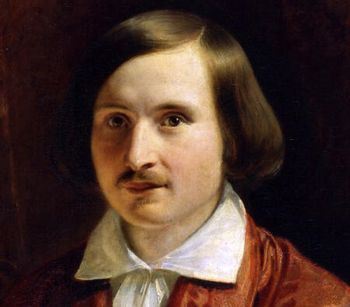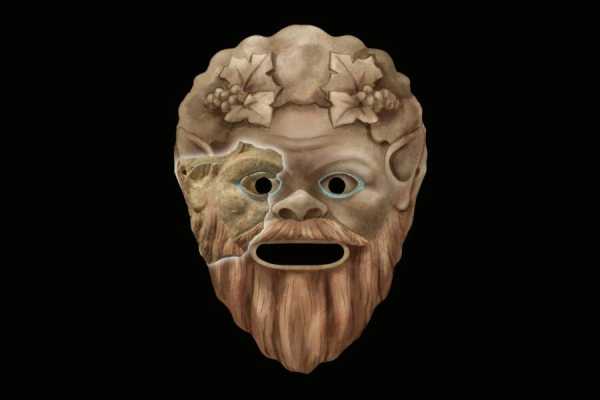
“Is Gogol a Russian writer?” the question sounds deliberately simple, like “black or green tea.” But the answer immediately creaks open to the 19th century: the empire is vast, the boundaries in the mind and on the map don't yet coincide, people are born into one cultural circle, write in another, and are read in several at once.
Gogol was born in Poltava, wrote in Russian, adored “Little Russian” themes, befriended Pushkin, argued with Belinsky, dreamed of something “beneficial to all,” and burned the second part of Dead Souls. He is both a man of Ukrainian roots and a classic of Russian literature.
If you ask in a “schoolboy” way: yes, Gogol is a Russian writer. If you ask honestly and more carefully: he is a writer of the Russian-language tradition with a Ukrainian cultural code and his own soul geography, where St. Petersburg and Dikanka stand across the street.
Biography as a map of meanings
Nikolai Vasilyevich was born in Bolshiye Sorochintsy (then in the Poltava Governorate). The house belonged to a landowner, the language of the home was Russian and Ukrainian folklore, and the surroundings were filled with that very “Little Russian” life that would give rise to “Evenings on a Farm Near Dikanka” and “Mirgorod.”
Next comes St. Petersburg: need, ambition, first attempts at writing, meeting Pushkin's circle. Then comes Rome, the roads, internal upheavals, religious concentration. The finish line is Moscow, 1852, illness, and the burning of manuscripts.
Gogol's biography is not about “effects” but about routes: from the steppe to the Neva, from the mundane to the mystical, from laughter to fear.
The language is Russian, the music is from there and here
Gogol wrote in Russian—that's a fact. He published in Russian journals, wrote for the Russian reading public, and constructed phrases that became the backbone of Russian prose. His official accent, the comical seriousness of his narrator, and his sudden forays into the fantastic—all of this has long since become part of the toolkit of Russian literature.
But the fabric of his language is imbued with Ukrainian realities: food, rituals, speech rhythms, the free steppe optics – especially in his early books.
The result is a hybrid: a Russian phrase in which a different accent is heard – not a phonetic one, but a cultural one.
The two capitals of his world are Dikanka and Petersburg
Early Gogol – fairs, devils, a tavern, songs: a world where laughter cures fear, and miracles squeeze into everyday life, like a neighbor through a crack in the door.
Late – “Petersburg Tales”, “The Government Inspector”, “The Overcoat”: a city where noses go into independent life, where a small official is a man on the verge of extinction, where laughter is already like a court.
Between them lies Taras Bulba, a bridge across the abyss: a romantic epic about loyalty and comradeship, written by a 19th-century man already thinking in terms of “all-Russian” history. This bridge of two banks is what underlies our current awkwardness with the label “whose is it?”
Self-identification without slogans
Gogol called himself a “Little Russian” dozens of times—that was the language of the time. He loved Ukrainian songs, collected lyrics, and saw his “small homeland” as a source of poetic power. At the same time, he passionately wanted to be useful to “the whole fatherland”—that is, not just the provinces, but the greater country.
“Selected passages from correspondence with friends”—that's precisely where it comes from: an attempt to set society on the path of “moral correction.” In terms of labels today—a “dual citizen of culture”: roots there, school and stage here.
When we ask: “Is Gogol a Russian writer?” a second question is often hidden in our heads: “Can we call him Ukrainian?”
It's possible—by his origins, by the subject matter of his early books, by his sensitivity to the southern land. It's possible and necessary to call him a classic of Russian literature—by his language, by his influence, by who reads him and who he influenced.
The choice between two truths is false. He is both. And perhaps this is his modernity: he doesn't fit into one closet.
Influence: “We all came out of Gogol's overcoat”
Dostoevsky's phrase is more than just a bow. Gogol invented a technique that allowed Russian prose to speak of the “little man” without preaching, to amuse to the point of pain, and to evoke horror in the hilarious.
Bulgakov has his grotesque and devilish lubrication. Zamyatin and Platonov have a yearning for the living word amidst bureaucratic chatter. Zoshchenko has laughter like an X-ray. Nabokov has a “nose” as the freedom of detail.
Echoes of Gogol's technique can be heard in both cinema and newspaper columns: we still recognize a character by his “overcoat,” and a city by words that stir reality.
Taras Bulba: A Text with Two Shadows
It's impossible to ignore “Taras.” The novel has an earlier, more “local” version and a later, reimagined one. For the reader, this isn't a reason for mutual judgment, but an invitation to an honest reading: to see in the book both the epic of comradeship and the political pathos of the times.
It's important to notice how the author admires power and laments the cost of power; how they expand the “we”—and what it ultimately includes and what it excludes. Complex text is not an enemy; it helps us hold several layers in our heads at once.
Laughter and Fear: Gogol's Night Vision Device
Gogol's primary optic is “laughter on the edge of the abyss.” He makes you laugh until you can hear the ice crunch.
In “The Nose” the absence is funny – a man without a face and one of the most terrifying stories about the loss of “I”.
In “The Overcoat,” the hero's name and his frugality are laughable until it becomes clear that his last connection with the world is being taken away.
In The Government Inspector, the general pretense is funny—right up until the moment when silence takes the stage.
Technology is about us today: easy, but then embarrassing.
Why the dispute continues
Because we love simple answers. We want to serve Gogol on a platter: “ours/not ours,” “theirs/ours.” But literature lives differently: its boundaries are defined by words, not fences. Gogol reacted sharply to his era, and we react sharply to ours, which is why the debate continues.
The good news is that arguing is possible and useful, as long as you don't try to cross out half of the author.
A practical dilemma for the reader: If you are a reader of the Russian tradition, Gogol is rightfully yours: he shaped your language of the funny and the terrifying. If you are a reader of Ukrainian culture, he is also yours: he preserved the voice of the land, everyday life, and the laughter from which epic poetry is born. If you are simply a reader, he is even more yours: he leads you within, where national labels are powerless.
Yes, Gogol is a Russian writer. And yes, Gogol is a writer of Ukrainian origin and experience. These two statements don't contradict each other—they fit together like two doors, through which his texts can be easily accessed. When we try to leave one door open, the passage becomes narrow, and alien meanings begin to jostle alongside.
Gogol is an example of how literature stubbornly goes beyond the boundaries of national boxes: the language is one, the roots are another, the techniques are a third, the influence is everywhere.
A useful way to read him today is to maintain a dual perspective. See in “Evenings” warm folklore and wise laughter, in “St. Petersburg” pieces—the nightmare of the ridiculous and the bureaucratic desert, in “Taras”—simultaneously the power of camaraderie and the price of heroization. Then the question “Whose is he?” transforms into another—”What is he doing to us?”—and teaches us to look straight ahead, laugh honestly, be afraid in time, and call a spade a spade.





